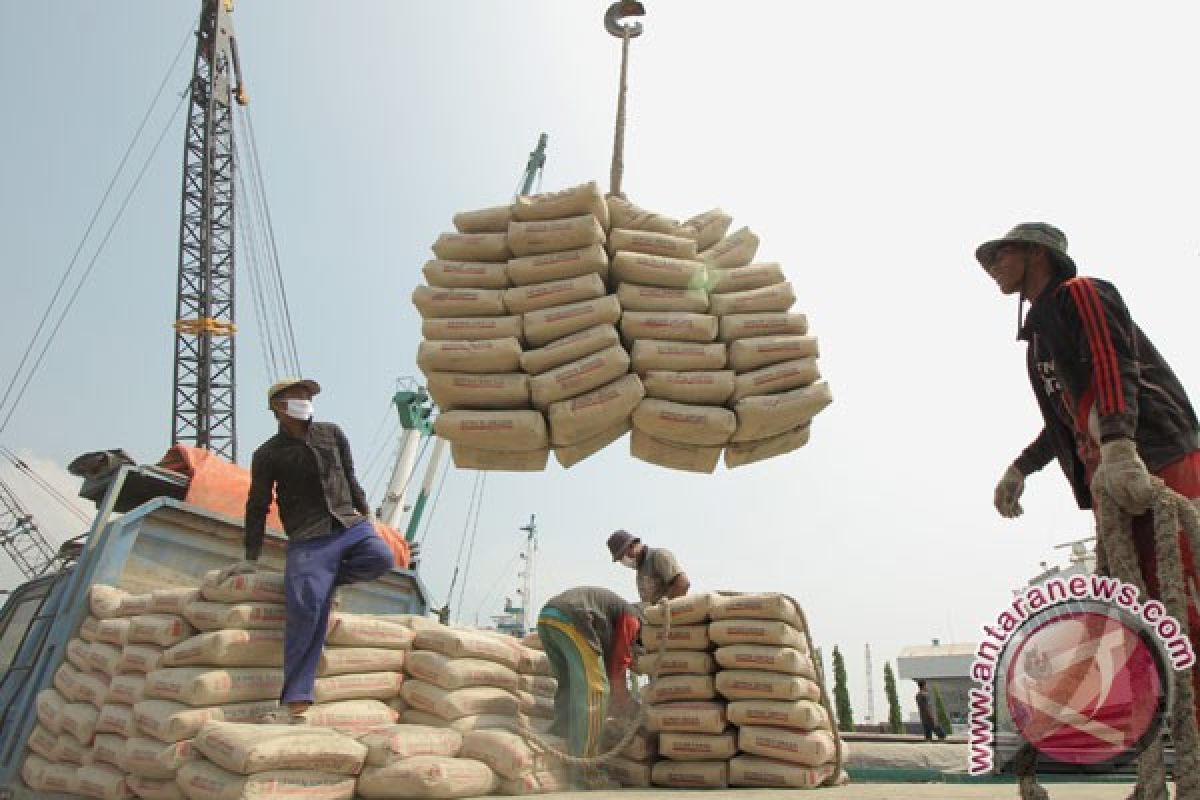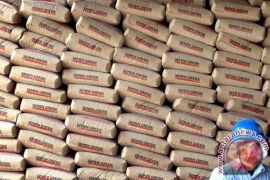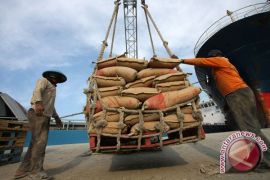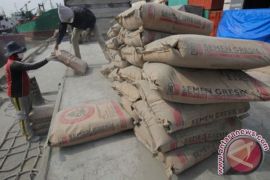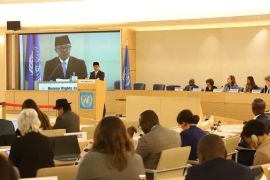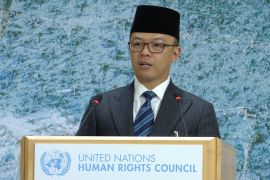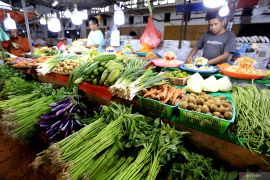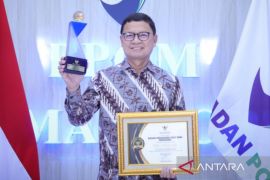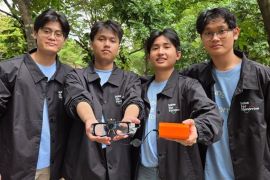Starting August 2015, Semen Gresik`s sales in the province have continued to increase."Jakarta (ANTARA News) - State-owned cement producer PT Semen Indonesia has set a target to increase its production capacity to 30 million tons in 2016 from the projected 28.5 million tons in 2015.
Earlier known as Semen Gresik, PT Semen Indonesia is the largest cement producer in Indonesia, with several plants on the islands of Java, Sumatra, and Sulawesi.
The cement plants are all supported by a distribution network that covers the entire country.
The publicly listed cement companys Chief Executive Officer, Suparni, remarked in Jakarta on Thursday that Semen Indonesias production from the existing packing plants was projected to reach 28.5 million tons until the end of 2015.
"In 2016, the production capacity of PT Semen Indonesia will increase to 30 million tons, or to rise by five to six percent than that in 2015," Suparni stated after speaking at the State-owned Enterprises (BUMN) Forum on "BUMN Synergy to Transforming Indonesia."
He noted that all existing plants --- Semen Padang in West Sumatra, Semen Gresik in East Java, and Semen Tonasa in South Sulawesi --- will cumulatively produce 30 million tons of cement in 2016.
According to Suparni, Semen Indonesia will continue to increase the number of packing plants to support the increase in the companys production capacity.
Moreover, he explained that the production capacity will also be supported by the existing special seaports and the network of more than three hundred distributors in various regions across the country.
"Production growth is driven by high domestic demand in line with the development of government infrastructure projects coupled with the increase in retail demand," he affirmed.
He explained that production growth in future will continue to increase as until the second semester of 2015, the nations cement consumption continued to improve in the eight percent range.
"Although there was five percent decline in the first semester of 2015, it increased in the second semester, and this trend is expected to continue in 2016," Suparni remarked.
Further, he explained that total production of some 30 million tons in 2016 will be used to meet the domestic market demand.
"PT Semen Indonesias production is almost entirely intended to meet the domestic demand, and even if it is exported, it is only about five to six hundred thousand tons, or some two percent of the total production," he noted.
Suparni revealed that by 2016, the company is targeting to achieve a revenue growth of about five percent in line with the growth in production volume.
The strategy used by the company to achieve the aforementioned revenue target is by improving efficiency in production supported by the decline in the prices of fuel oil and electricity tariffs, as well as by increasing distribution efficiency by utilizing the packing facility, among others.
Suparni earlier noted in November that PT Semen Indonesia was conducting a feasibility study in Aceh in connection with its plan to build a cement factory in Pidie district.
"We are ready to build a cement factory in Aceh. We are now in the process of completing the feasibility study. The groundbreaking ceremony is expected to take place next year if all the processes run well," Suparni stated.
He noted that around Rp3.5-4 trillion will be invested to develop the plant, which is expected to have a capacity of three million tons, excluding the infrastructure cost.
According to Suparni, the company will set up a joint venture for the project with a local company in which PT Semen Indonesia will later be the majority stockholder, with more than 70 percent shares.
"It is forecast that the construction will be completed in 2019-2020," he stated.
Suparni said the company will target consumers in the eastern parts of Sumatra and North Sumatra, with a possibility of exporting some of its production to Myanmar, Malaysia, and Singapore.
The company will also target Bangladesh in view of the countrys cement needs, which have so far only been met through imports, he noted.
"Bangladesh only has one factory that cannot fully meet the countrys demands. Around 85 percent of the countrys needs are met through imports," he pointed out.
He claimed that the efforts to boost exports will also be made following the completion of Semen Indonesias Indarung VI plant in West Sumatra and a plant in Rembang, Central Java, in the third quarter of 2016.
In the meantime, Semen Indonesia Sales Department Chief Bambang Djoko said recently that the company will commission a new cement packing plant in Pontianak, West Kalimantan.
"The packing plant will strengthen Semen Indonesias position in the cement industry in West Kalimantan and the country in general. Currently, the company has a 35 percent share in the cement market in the province," Djoko stated last month in Pontianak.
According to Djoko, infrastructure development in Pontianak and West Kalimantan in general has been especially fast, thereby unveiling better opportunities for the cement market in this region.
Meanwhile, Mukhamad Saifudin, the commercial director of Semen Gresik, the parent company of Semen Indonesia, stated that Semen Gresiks sales in West Kalimantan had increased, reaching 117 thousand tons in the first 10 months of 2015, or an increase of 0.5 percent compared to the same period in 2014.
Saifudin attributed the increase in sales to the construction of road infrastructure, shopping malls, hotels, and tourist resorts in Singkawang.
"Starting August 2015, Semen Gresiks sales in the province have continued to increase," he said.
Saifudin noted that the increase in sales was also the result of increased consumer confidence in the cement produced by the countrys largest cement maker.
He said that cement packaged in bags accounted for 75 percent of the cement sales of the company, indicating that the property sector accounted for the largest chunk of sales.
He also added that the company continued to improve the quality of its product to maintain consumer confidence.
(T.O001/INE/KR-BSR/F001)
Reporter: Otniel Tamindael
Editor: Priyambodo RH
Copyright © ANTARA 2015
